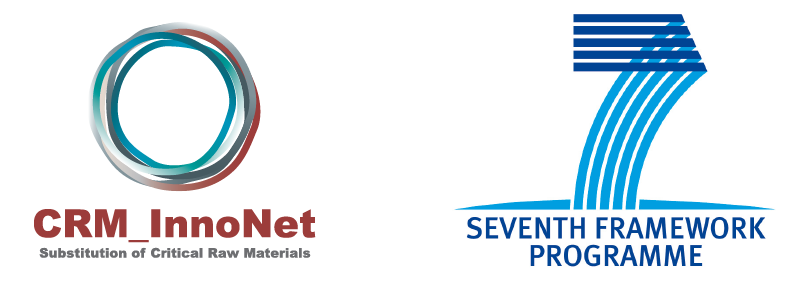Case study
Elements of the Earth
KTN’s involvement in the CRM_InnoNet project is helping to secure the long-term supply of critical raw materials.
Summary
Raw materials are crucial to the economy, and ensuring a secure supply is essential. Certain materials are defined as critical raw materials (CRM) including rare Earth elements, which are essential for a number of technologies such as laptops, mobile phones, wind turbines, battery storage, photovoltaics, LED lighting, MRI scanners, household appliances, hybrid and electric cars, HGVs and aircraft.
The CRM_InnoNet project is helping to secure the long-term supply of these CRMs. Working with the Materials Security Special Interest Group, CRM_InnoNet was able to benefit from its knowledge of the issues in the sector and opportunities for innovation. KTN input led directly to securing €2.6 million in EU funding, and its role in this project provides UK businesses with an unprecedented opportunity to be connected to organisations with similar interests across Europe.
"KTN plays an essential role in understanding UK business needs and working with European Technology Platforms, Innovation Partnerships and the European Commission to ensure these views are heard." Dr Simon Rushworth, Business Technical Manager, EpiValence.
The CRM_InnoNet Story
KTN led an EU project to inform strategy on critical raw materials (CRMs) – materials that have serious issues around continuity of supply. KTN ensured that the needs of UK businesses were represented in the strategy, and its input led to the creation of a funding call for the substitution of CRMs. KTN was also a catalyst in bringing together partners to develop a broader European network, SCRREEN – a consortium of CRM experts with thirty partners across fifteen countries.
How did KTN help?
Raw materials are crucial to the economy, and ensuring a secure supply is essential. However, certain materials are defined as ‘critical’ resources for various reasons including natural scarcity, difficulty in extraction and price fluctuations or unavailability due to the high concentration of raw materials being mined in politically unstable countries. This has a potentially high detrimental effect on supply.
CRMs include rare Earth elements cobalt, tungsten, magnesium, platinum group materials and niobium and are essential components of a number of technologies and applications, such as: ICT – laptops and mobile phones; energy – wind turbines, battery storage and photovoltaics; electronics – LED lighting, printed circuit boards, MRI scanners and household appliances; and transport – hybrid and electric cars, HGVs and aircraft.
KTN became involved in the CRM_InnoNet project through its Material Security Special Interest Group (SIG), which was set up to help the UK become more resource efficient. The group included scientists, engineers and product developers, working to devise new business models and supply chain solutions and support collaborative projects, bringing together industry and academic interests.
Thanks to the Materials Security SIG (which has now come to a close), KTN had a wide knowledge of the issues in the sector and related opportunities for innovation. The European Commission created a list of priority CRMs and KTN worked with them to create roadmaps for ensuring continuity of supply, using substitution strategies to reduce dependency on them, via material substitution, process substitution, new technology and system change or resource efficient business models.
KTN worked closely with the European Technology Platform for Sustainable Chemistry (SusChem) to highlight the innovation opportunities associated with substitution to policy makers in Brussels. The project ran until 2015, involving eighteen partners from across Europe. As the Coordinator of the project, KTN was able to inform EU strategy on raw materials and to make sure the needs of UK businesses were heard.
KTN input led directly to the creation of a European Funding call focusing on the substitution of critical materials such as Indium Tin Oxide in electronic goods, and UK businesses were successful in securing €2.6 million in funding. In total UK organisations won 46% of the available €9 million funding and led on successful projects.
Following on from CRM_InnoNet, KTN played a catalysing role in bringing together partners for a new project entitled Solutions for Critical Raw materials – a European Expert Network (SCRREEN) which is now active.
Launched in November 2016, the SCRREEN project aims to create a long-lasting Expert Network on Critical Raw Materials issues. The activities of the project are focused on the three pillars of critical raw materials: primary resources; secondary resources (recycling and recovery issues); and best alternatives for substitution of materials/processes.
The network will be a permanent forum for policy-makers and industry, encouraging ongoing dialogue, promoting research and innovation, implementing industrial policy and strengthening competitiveness.
KTN’s role in this project provides UK businesses with an unprecedented opportunity to be connected to organisations with similar interests across Europe.
This project has received funding from the European Union’s Seventh Framework Programme for research, technological development and demonstration under grant agreement no 319024.
